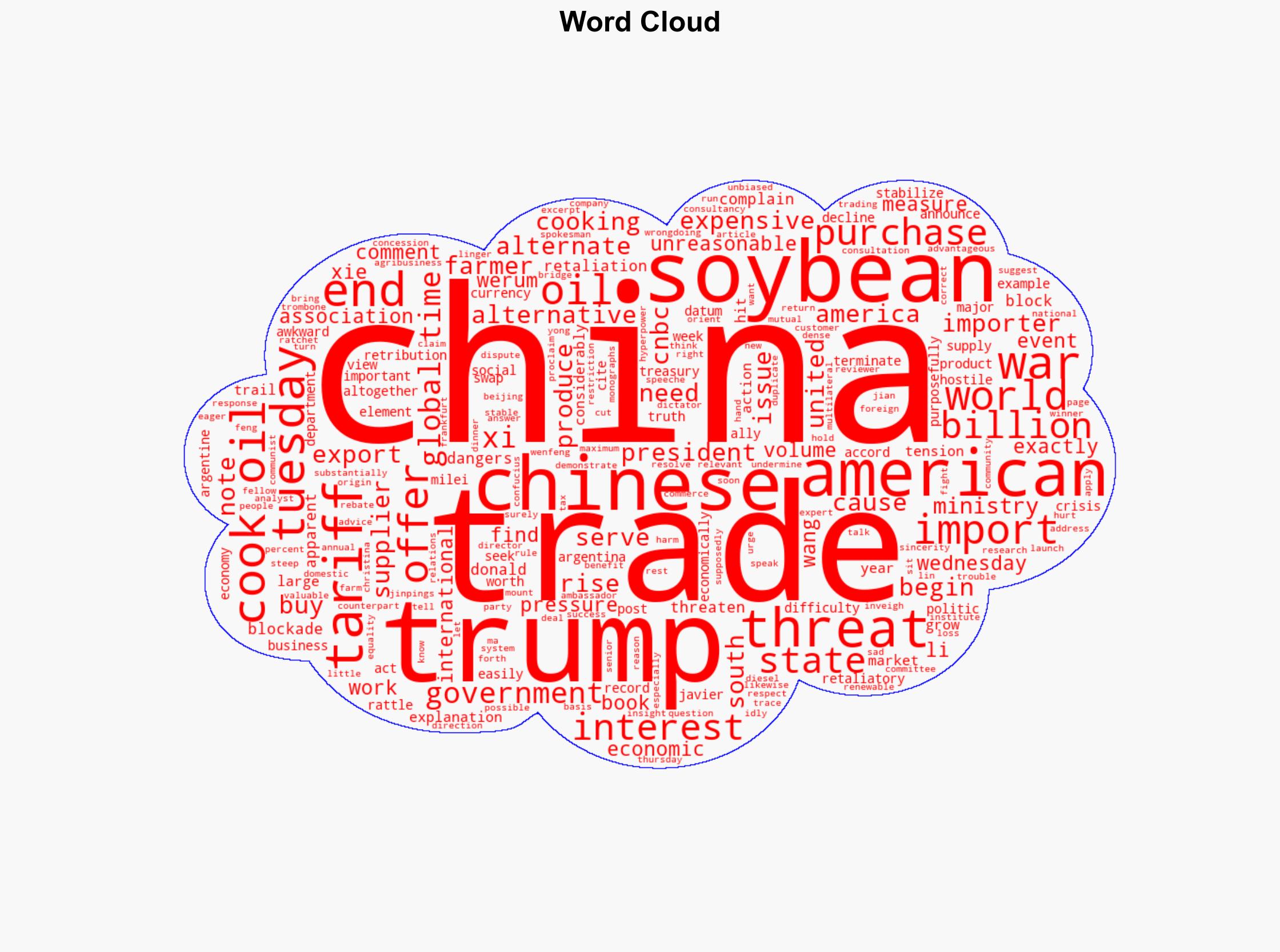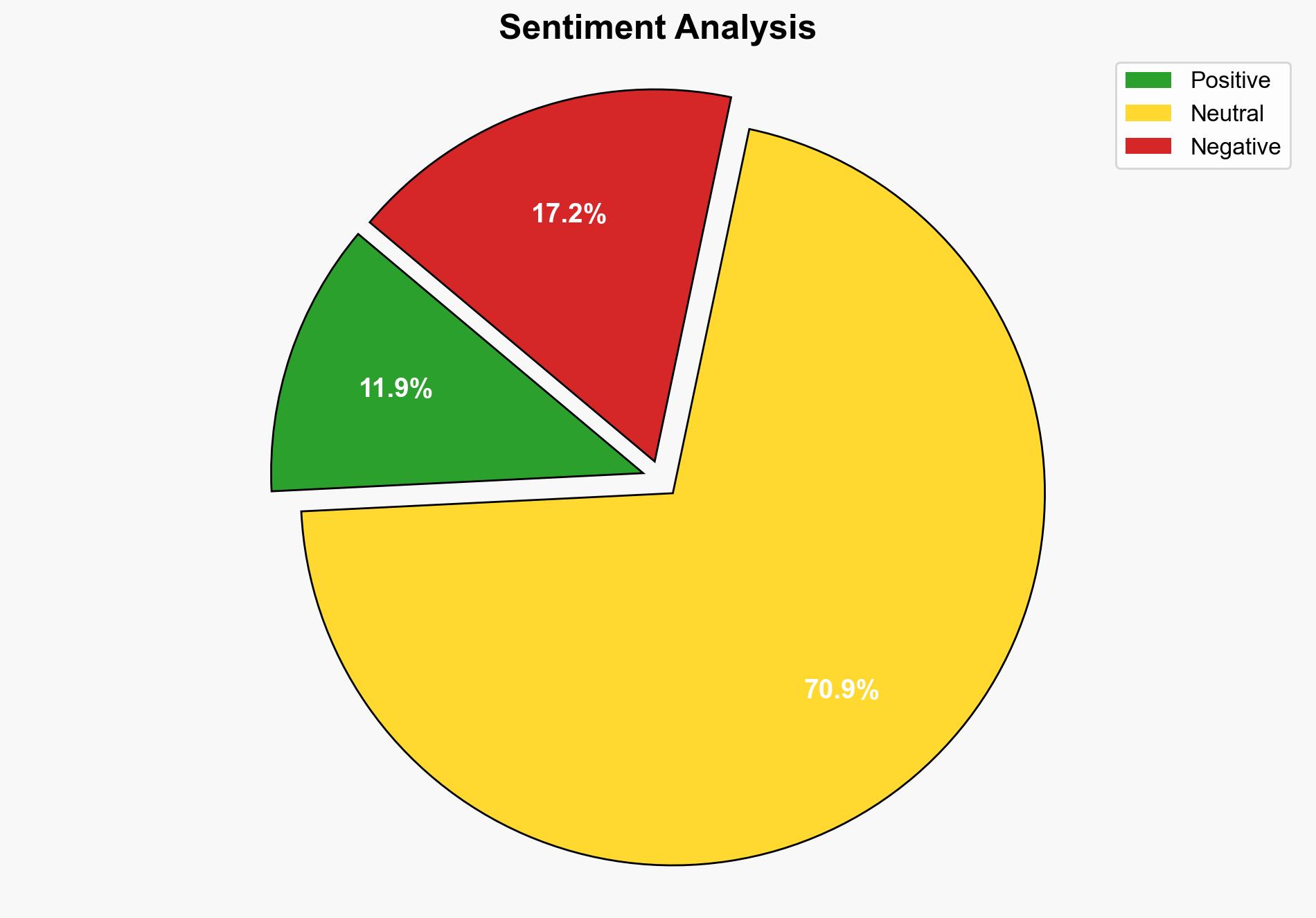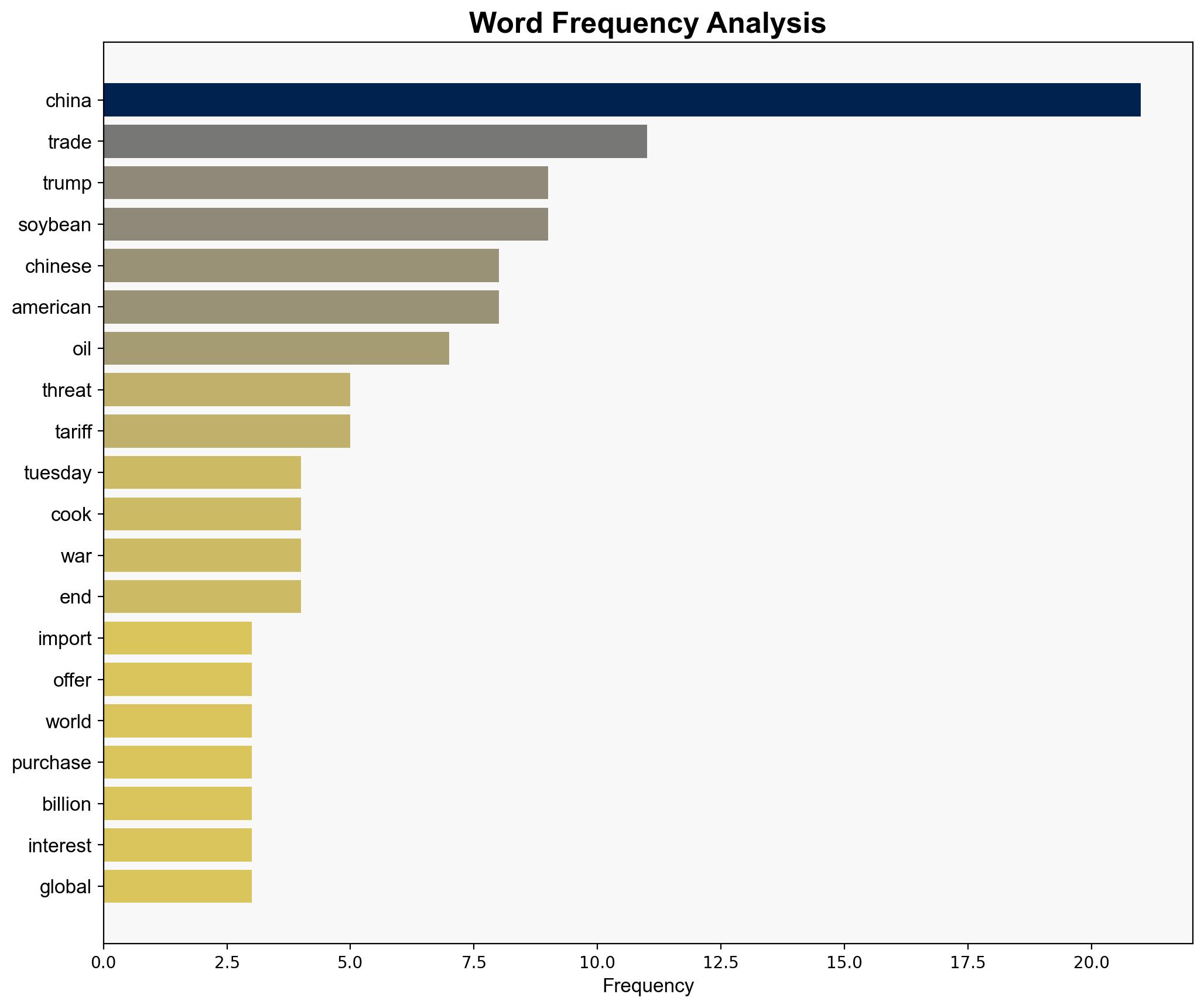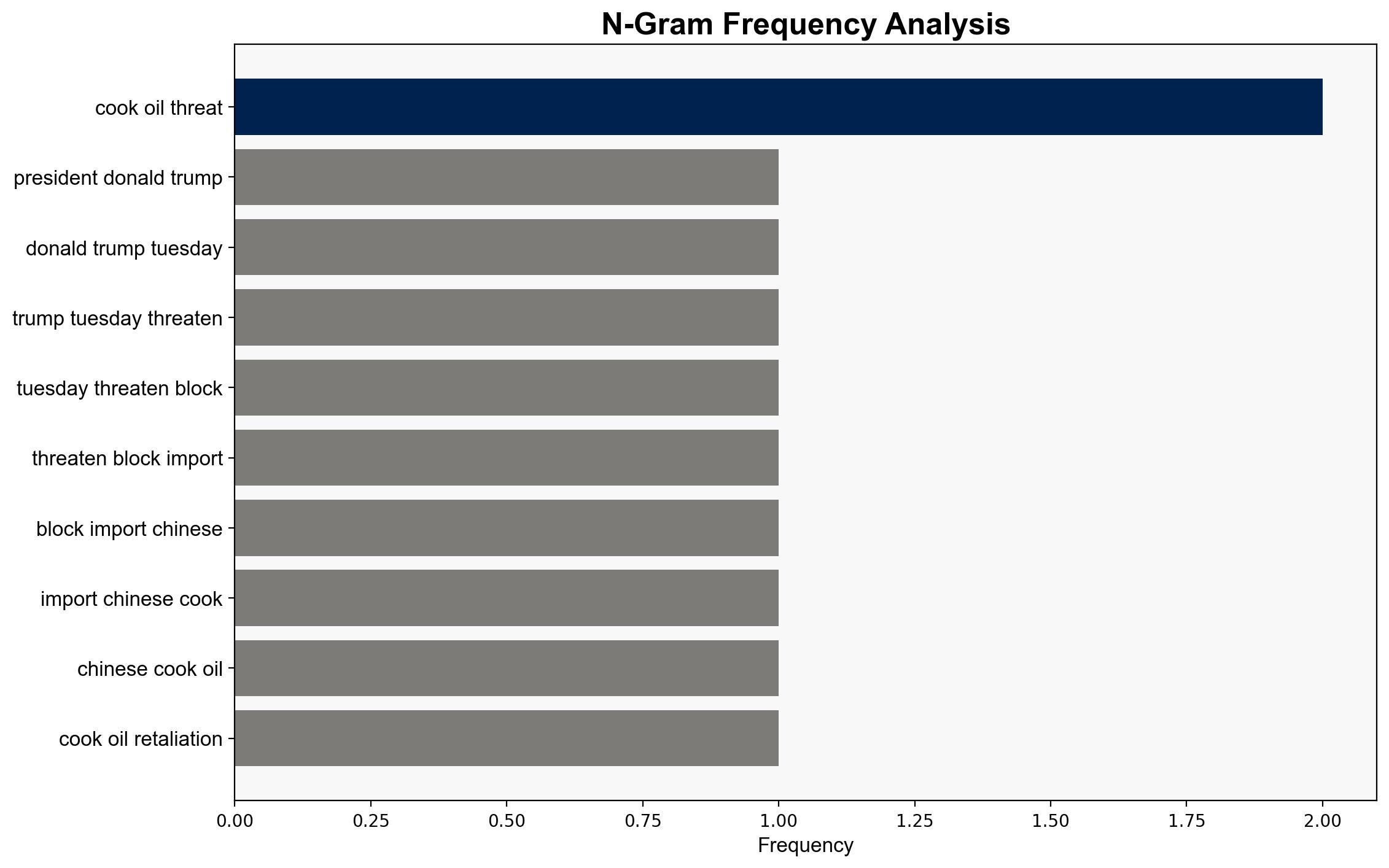Soybeans and Cooking Oil Take Center Stage in China Trade Dispute – Breitbart News
Published on: 2025-10-17
Intelligence Report: Soybeans and Cooking Oil Take Center Stage in China Trade Dispute – Breitbart News
1. BLUF (Bottom Line Up Front)
The most supported hypothesis is that the trade tensions between the United States and China are escalating, with both nations leveraging agricultural commodities as tools of economic pressure. This is likely to continue unless diplomatic negotiations are prioritized. Confidence Level: Moderate. Recommended action is to initiate multilateral discussions to de-escalate tensions and explore alternative markets for affected commodities.
2. Competing Hypotheses
1. **Hypothesis A**: The United States’ threat to block Chinese cooking oil imports is a strategic move to pressure China into resuming soybean purchases, aiming to protect American farmers and gain leverage in trade negotiations.
2. **Hypothesis B**: The cooking oil threat is primarily a symbolic gesture intended to appease domestic political audiences, with limited expectation of influencing China’s trade behavior significantly.
Using ACH 2.0, Hypothesis A is better supported due to the strategic importance of soybeans in U.S. agriculture and the potential economic impact on China, which relies on U.S. soybeans. Hypothesis B is less supported as it underestimates the economic stakes involved.
3. Key Assumptions and Red Flags
– **Assumptions**: It is assumed that China cannot easily replace U.S. soybeans without significant economic cost. Another assumption is that the U.S. has the capacity to withstand the economic repercussions of a prolonged trade dispute.
– **Red Flags**: The assumption that China will react predictably to U.S. threats may be flawed, given its ability to source alternative suppliers. Additionally, the potential for domestic political pressures influencing U.S. decision-making is a critical blind spot.
4. Implications and Strategic Risks
The ongoing trade dispute could lead to a prolonged economic standoff, affecting global agricultural markets and potentially escalating into broader economic conflicts. The risk of retaliatory measures by China could impact other sectors, such as technology and manufacturing. There is also a risk of domestic unrest in both countries if economic conditions worsen.
5. Recommendations and Outlook
- Engage in diplomatic efforts with China to de-escalate tensions and explore mutually beneficial trade agreements.
- Develop contingency plans for U.S. farmers to access alternative markets.
- Scenario Projections:
- Best Case: Successful negotiations lead to resumed trade and economic stability.
- Worst Case: Escalation into a full-scale trade war, severely impacting both economies.
- Most Likely: Continued tensions with periodic negotiations and temporary agreements.
6. Key Individuals and Entities
– Donald Trump
– Javier Milei
– Lin Jian
– Ma Wenfeng
– Xie Feng
– Li Yong
7. Thematic Tags
national security threats, economic warfare, trade disputes, U.S.-China relations





